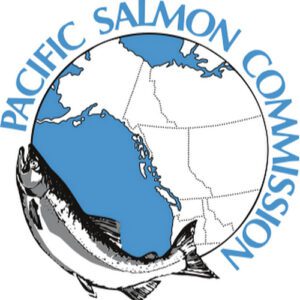 Applications for four grant programs offered through the Pacific Salmon Commission are being accepted for projects to enhance wild salmon stocks and their habitat. Deadlines range from Aug. 1 to Nov. 1.
Applications for four grant programs offered through the Pacific Salmon Commission are being accepted for projects to enhance wild salmon stocks and their habitat. Deadlines range from Aug. 1 to Nov. 1.
The call for proposals for the Southern Endowment Fund, for southern British Columbia, Washington, Oregon and Idaho’s Snake River Basin, as well as the Northern Endowment Funds for the area from Cape Suckling, Alaska, to Cape Caution, British Columbia, is open through Sept. 6.
The annual grant programs support projects related to salmon stocks in the U.S. and Canada, within the respective geographic areas covered by each endowment.
These funds are earmarked to support projects aligned with specific goals, objectives and priorities, including improving resource management, marine and freshwater habitat and enhancing wild stock production through low technology techniques.
Proposals are also being accepted through Aug. 1 for the Mark Selective Fishery Fund, a time-limited grant program supporting projects implementing mark selective fisheries in the U.S. and Canada within the geographic areas covered by the Pacific Salmon Treaty.
The fund supports a competitive grant program to mass-mark or sample hatchery-produced Chinook salmon, estimate incidental mortality and maintain and improve the ability to estimate exploitation rates on Chinook salmon indicator stocks encountered in mark selective fisheries.
The work could include improvements and development of bilateral analytical tools. The U.S. has provided $3.57 million to the fund, which the commission expects to disburse over several years.
The application period for proposals for the annual Yukon River Panel Restoration and Enhancement Fund, for salmon stocks in the Yukon River drainage on both sides of the Alaska-Yukon border, remains open through Nov. 1.
Further information on the grants is available at:
- https://tinyurl.com/2uespthz
- https://tinyurl.com/36s5dxta
- https://tinyurl.com/5x3kj2da
- https://tinyurl.com/2ws8u9f3
The Pacific Salmon Commission oversees two endowment funds established in 1999 to support projects in Canada and the U.S that develop improved information for resource management, rehabilitate and restore marine and freshwater salmon habitats and enhance wild stock production using low-technology techniques.
The Pacific Salmon Treaty, signed in 1985, set long-term goals to benefit salmon in both countries. The commission itself was formed by the federal governments of Canada and the U.S. to implement the 16-person body. Four commissioners and four alternates each from the U.S. and Canada serve, representing the interests of commercial and recreational fisheries as well as federal, state and tribal governments.
